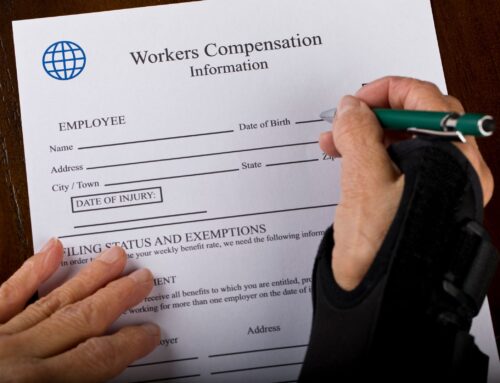Injured While Working: Navigating Workers’ Compensation for Back, Neck, Shoulder, and Common Roofing Job Injuries
Sustaining an injury while on the job can be a daunting experience, especially if it affects your ability to work and provide for yourself and your loved ones. For individuals in physically demanding professions like roofing, the risk of back, neck, shoulder, and other injuries is a reality that cannot be ignored. If you find yourself in such a situation, understanding your rights and the avenues available for seeking compensation and medical treatment is crucial. This article will explore how workers in the roofing industry can navigate the complexities of workers’ compensation to secure the assistance they need.
Understanding Workers’ Compensation:
Workers’ compensation is a form of insurance that provides medical benefits and wage replacement to employees who are injured or become ill while performing their job duties. In the case of roofing jobs, where physical strain is commonplace, injuries can range from the common back, neck, and shoulder strains to more severe conditions.
Types of Roofing Job Injuries:
- Falls: Roofing involves working at heights, increasing the risk of falls. These falls can result in fractures, head injuries, spinal cord injuries, and even fatalities.
- Musculoskeletal Injuries: The physical demands of lifting heavy materials and maneuvering on uneven surfaces can lead to musculoskeletal injuries such as strains, sprains, and tears in the back, neck, and shoulders.
- Repetitive Motion Injuries: Roofing tasks often involve repetitive motions such as hammering, nailing, and lifting, which can cause repetitive motion injuries like tendinitis, carpal tunnel syndrome, and bursitis.
- Cuts and Lacerations: Working with sharp tools and materials puts roofers at risk of cuts and lacerations, which can range from minor injuries requiring stitches to more severe wounds that may result in nerve damage or loss of function.
- Heat-related Illnesses: Roofing work is often performed outdoors in hot weather conditions, increasing the risk of heat-related illnesses such as heat exhaustion and heat stroke, especially during the summer months.
Seeking Medical Treatment:
If you’ve been injured while performing a roofing job and are experiencing any of these injuries, seeking medical treatment should be your first priority. Prompt medical attention not only ensures that you receive the care you need but also creates a record of your injury, which is essential when filing for workers’ compensation benefits. Your employer is required by law to provide and pay for your medical care. Your employer must also advise you what doctors to see. When seeking medical treatment, be sure to inform your healthcare provider that your injury occurred at work. This will help ensure that the necessary documentation is generated for your workers’ compensation claim. Additionally, follow your doctor’s recommendations for treatment and rehabilitation diligently to facilitate your recovery process.
Navigating the Workers’ Compensation Process:
Navigating the workers’ compensation process can be complex, especially when you’re dealing with the physical and emotional challenges of an injury. However, understanding the steps involved can help streamline the process and ensure that you receive the benefits you’re entitled to.
- Report Your Injury: As soon as possible after sustaining your injury, report it to your employer or supervisor. Failure to report the injury promptly could jeopardize your ability to receive benefits.
- File a Claim: Your next step is to file a workers’ compensation claim with your employer’s insurance carrier. This typically involves completing a claim form and providing any supporting documentation, such as medical records and witness statements.
- Attend Medical Examinations: In some cases, you may be required to undergo an independent medical examination (IME) arranged by the insurance company. These examinations help assess the extent of your injuries and determine your eligibility for
benefits. - Receive Benefits: If your claim is approved, you may be eligible to receive medical benefits, which cover the cost of necessary medical treatment, as well as disability benefits, which provide wage replacement if you’re unable to work due to your injury.
- Appeal if Necessary: If your claim is denied or you disagree with the benefits offered, you have the right to appeal the decision. This typically involves requesting a hearing before a workers’ compensation judge, who will review the evidence and make a determination.
Suffering an injury while working as a roofer can have significant implications for your health, livelihood, and financial stability. However, by understanding your rights under workers’ compensation law and seeking the assistance of an experienced attorney, you can navigate the process with confidence and maximize your chances of receiving the benefits and medical treatment you deserve. Don’t hesitate to reach out for help if you find yourself in this situation—your well-being is worth fighting for.





